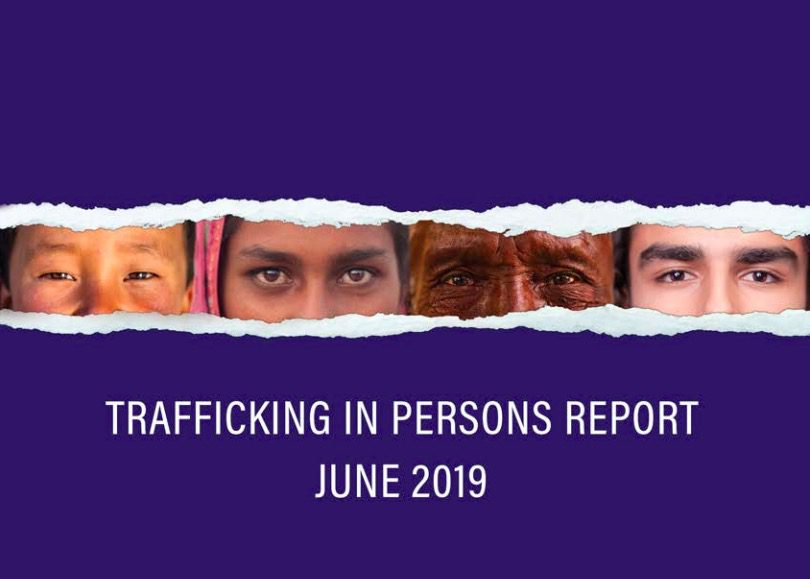
Trafficking in Persons Report 2019
This is an important time for us to be engaged in the work of stopping traffickers, protecting victims, and tackling the systems that allow the crime to thrive. Traffickers continue to operate with impunity and only a small fraction of victims receive trauma-informed, victim-centered support services. Yet, by working together, governments, civil society organizations, survivor advocates, and faith communities can reverse this troubling pattern.
This year, the TIP Report introduction highlights human trafficking that takes place exclusively within the borders of one country, absent any transnational elements. Although acknowledging human trafficking in this form is not new or novel, it remains important. The ILO reports that, globally, traffickers exploit 77 percent of victims in their countries of residence. Far too often, individuals, organizations, and governments erroneously use definitions of trafficking in persons that require the movement of victims. Both the Trafficking Victims Protection Act and the United Nations’ Palermo Protocol focus on compelling a person to work or engage in a commercial sex act; they do not require movement from one place to another. The Palermo Protocol requires each state party to establish in its domestic law the crime of human trafficking both within and between countries.
As we in the Office to Monitor and Combat Trafficking in Persons worked to prepare the 187 country narratives for this year’s TIP Report, it became apparent that in many countries, governments are reluctant to address human trafficking when it happens at home. In effect, they are turning a blind eye to those traffickers who exploit their own citizens, neglecting to apply their own domestic laws regarding human trafficking, and sometimes even allowing harmful cultural norms and practices to thrive.
This year, the TIP Report serves as a call to action for governments around the world to embrace the full meaning of the Palermo Protocol and implement their domestic laws in a manner that protects all victims and punishes all traffickers.
I am honored to serve as the U.S. Ambassador-at-Large to Monitor and Combat Trafficking in Persons. Promoting justice and human rights around the world is essential because freedom and individual human dignity are core to American values and the foundation of international law. These are the very principles that traffickers work against when they commit these crimes. I am confident that we can make significant strides to hold accountable domestic, and transnational, traffickers and effectively implement laws so that all may enjoy freedom.
Sincerely,
John Cotton Richmond
Read or download report here.
